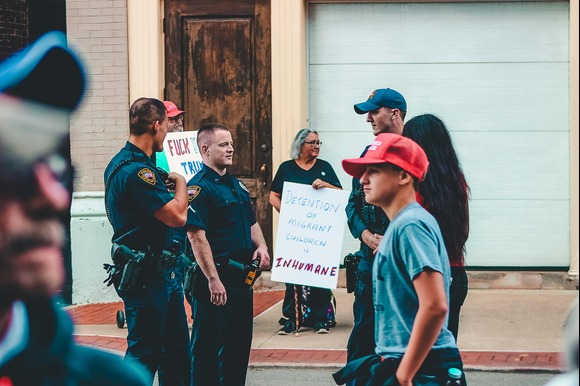The Trump administration has announced the revocation of the temporary legal status for 530,000 individuals from Cuba, Haiti, Nicaragua, and Venezuela residing in the United States, as indicated in a notice published in the Federal Register on Friday. This action represents the latest measure in Trump’s ongoing efforts to tighten immigration policies.
Effective April 24, this new directive terminates a two-year “parole” that had been granted to these migrants under former President Joe Biden, which permitted them to enter the country by air with the support of U.S. sponsors. Since assuming office, Trump, a Republican, has intensified immigration enforcement, including efforts to deport unprecedented numbers of undocumented migrants. He has contended that the legal entry parole programs initiated by his Democratic predecessor exceeded federal law and has called for their cessation through an executive order issued on January 20.
On March 6, Trump stated that he would soon make a decision regarding the potential revocation of parole status for approximately 240,000 Ukrainians who sought refuge in the U.S. amid the ongoing conflict with Russia. His comments followed a Reuters report suggesting that his administration intended to rescind this status for Ukrainians as early as April.
In 2022, President Biden initiated a parole entry program for Venezuelans, which was later extended in 2023 to include Cubans, Haitians, and Nicaraguans, as his administration faced significant challenges related to illegal immigration from these countries. The diplomatic and political relationships between the United States and these four nations have been tense.
This introduction of new legal pathways coincided with Biden’s efforts to reduce illegal crossings at the US-Mexico border.
The previous administration’s action to revoke the legal status of approximately 500,000 migrants may leave many at risk of deportation if they opt to stay in the United States. It is still uncertain how many individuals who entered the US under the parole program have since obtained alternative forms of protection or legal status.
In a notice scheduled for formal publication in the Federal Register on Monday, the US Department of Homeland Security indicated that revoking parole status would facilitate the placement of these migrants into a rapid deportation process known as “expedited removal.”
According to a policy from the Trump administration enacted in January, expedited removal can be applied to certain migrants who have been in the US for two years or less.






